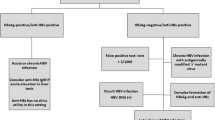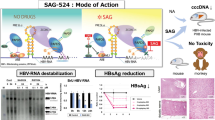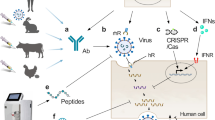Abstract
A number of promising new hepatitis C virus (HCV) antiviral regimens have emerged during the last few years, with a trend toward increased efficacy, safety, and tolerability, when compared with currently available therapies. The focus of recent HCV antiviral drug development has been on inhibition of HCV replication, largely by targeting specific components of the HCV replication complex itself. A significant effort has been put into generating drugs that inhibit the NS5B polymerase. A number of such drugs have been developed, and NS5B polymerase inhibitors can be divided into nucleoside polymerase inhibitors and nonnucleoside polymerase inhibitors, with each group carrying specific pharmacologic and clinical characteristics. Additional research has explored the efficacy of drugs that inhibit the HCV replication complex via other mechanisms. Second-generation NS3-4A protease inhibitors have been developed, which have generally improved on the efficacy of the currently available FDA-approved first-generation agents. NS5A inhibitors have also been studied. These medications impede HCV replication and viral particle assembly and enhance host immune activation via novel mechanisms. Alternatively, medications that target a host protein, cyclophillin B, are under evaluation. These medications block HCV replication via modification of the effects of NS5B and via other poorly understood mechanisms. Detailed below are the most important HCV antiviral agents under development, many of which show promise for use within the next few years.




Similar content being viewed by others
References
Moradpour D, Penin F, Rice CM. Replication of hepatitis C virus. Nat Rev Microbiol. 2007;5:453–63.
Lesburg CA, Cable MB, Ferrari E, et al. Crystal structure of the RNA-dependent RNA polymerase from hepatitis C virus reveals a fully encircled active site. Nat Struct Biol. 1999;6:937–43.
Mauss S, Berg T, Rockstroh J, Sarrazin C, Wedemeyer H. Short Guide to Hepatitis C 2012 Edition; Flying Publisher & Kamps.
Koch U, Narjes F. Recent progress in the development of inhibitors of the hepatitis C virus RNA-dependent RNA polymerase. Curr Top Med Chem. 2007;7:1302–29.
Pockros P, Jensen DM, Tsai N. First SVR data with the nucleoside analogue polymerase inhibitor mericitabine (RG7128) combined with peginterferon/ribavirin in treatment-naive HCV G1/4 patients: interim analysis of the JUMP-C trial. J Hepatol. 2011;54:538.
Pockros P, Jensen D, Tsai N, et al. SVR-12 among G1/4 Treatment-Naïve Patients receiving Mericitabine in Combination with PEG-IFNα-2A/RBV: Interim Analysis from the Jump-C Study. J Hepatol. 2012;56(Supplement 2):S477.
Gane EJ, Roberts SK, Stedman CA, et al. Oral combination therapy with a nucleoside polymerase inhibitor (RG7128) and danoprevir for chronic hepatitis C genotype 1 infection (INFORM-1): a randomised, double-blind, placebo-controlled, dose-escalation trial. Lancet. 2010;376:1467–75.
Gane EJ, Pockros P, Zeuzem S, et al. Interferon-Free Treatment with a combination of Mericitabine and Danoprevir/R with or without Ribavirin in Treatment-Naïve HCV Genotype 1-Infected Patients. J Hepatol. 2012;56(Supplement 2):S555.
Hoffmann-La Roche. ANNAPURNA: A study of the combination of RO5466731, RO5190591, ritonavir and Copegus(ribavirin) with or without RO5024048 in patients with chronic hepatitis C who are either treatment-naive or have previously experienced a null response to interferon-based treatment [ClinicalTrials.gov identifier NCT01628094]. US National Institutes of Health, ClinicalTrials.gov [online] Available from URL:http://www.clinicaltrials.gov [Accessed 2012 Aug26]
Nelson DR, Lalezari J, Lawitz E, et al. Once daily PSI-7977 plus PEG-IFN/ RBV in HCV GT1: 98 % rapd virologic response, complete early virologic response: the PROTON study. J Hepatol. 2011;54 suppl 1:S544. Abstract 1372.
Lalezari J, Lawitz E, Rodriguez-Torres M, et al. Once daily PSI-7977 plus PEGIFN/RBV in a phase 2B trial: rapid virologic suppression in treatment-naïve patients with HCV GT2/GT3. J Hepatol. 2011;54 suppl 1:S28. Abstract 61.
Lawitz E, Lalezari JP, Hassanein T, et al. Once-daily PSI-7977 plus peg/RBV in treatment-naive pateints with HCV GT1: robust end of treatment response rates are sustained post-treatment. Hepatology. 2011;54:113.
Gane EJ, Stedman CA, Hyland RH, et al. PSI-7977: ELECTRON Interferon is not required for Sustained Virologic Response in Treatment-Naïve Patients with HCV GT2 or GT3 . 62nd Annual Meeting of the American Association for the Study of Liver Diseases November 4–8, 2011 San Francisco, CA.
Gane EJ, Stedman C, Anderson J, et al. 100 % Rapid Virologic Response for PSI-7977 + Ribavirin in Genotype 1 Null Responders (ELECTRON): Early Viral Decline Similar to that Observed in Genotype 1 and Genotype 2/3 Treatment-naïve Patients. 19th Conference on Retroviruses and Opportunistic Infections, March 5–8, 2012; abstract 54LB.
Gilead Announces Early Sustained Virologic Response Rates for GS-7977 Plus Ribavirin in Genotype 1 Treatment-Naïve Hepatitis C Patients- Interim Results Reported from ELECTRON and QUANTUM Studies. Barcelona, Spain, Apr 19, 2012.Gilead Sciences, Inc.
Sulkowski M, Gardiner D, Lawitz E, et al. Potent viral suppression with all-oral combination of daclatasvir (NS5A inhibitor) and GS-7977 (NS5B inhibitor), +/-ribavirin, in treatment-naïve patients with chronic HCV GT1, 2, or 3. 47th Annual Meeting of the European Association for the Study of the Liver, April 18–22, 2012, Barcelona, Spain; LB abstract 1422.
http://www.clinicaltrials.gov: Hepatitis C and Gilead Sciences. August 19, 2012.
Bristol-Myers to Suspend a Drug Study. The New York Times, August 3, 2012.
Lawitz E, Poordad F, Kowdley KV, et al. A 12-week interferon- free regimen of ABT-450/r, ABT-072, and ribavirin was well tolerated and achieved sustained virologic response. 2012 Apr 18–22; Barcelona.
Poordad F, Lawitz E, Kowdley KV, et al. 12-Week interferon- free regimen of ABT-450/r+ABT-333+ribavirin achieved SVR12 in more than 90 % of treatment-naïve HCV non-responders [abstract no. 1399]. 47th Annual Meeting of the European Association for the Study of the Liver;2012 Apr 18–22; Barcelona.
Zeuzem S, Asselah T, Angus P, et al. Efficacy of the protease inhibitor BI 201335, polymerase inhibitor BI 207127, and ribavirin in patients with chronic HCV infection. Gastroenterology. 2011;141(6):2047–55.
Zeuzem S, Buggisch P, Agarwal K, et al. Dual, triple, and quadruple combination treatment with a protease inhibitor (GS-9256) and a polymerase inhibitor (GS-9190) alone and in combination with ribavirin (RBV) or PEGIFN/RBV for up to 28 days in treatment-naıve, genotype 1 HCV subjects [abstract no. LB1]. 61st Annual Meeting of the American Association for the Study of Liver Diseases; 2010 Oct 29–Nov 2; Boston (MA).
Sulkowski M, Rodriguez-Torres M, Lawitz E, et al. High sustained virologic response rate in treatment-naive HCV genotype 1a and 1b patients treated for 12 weeks with an interferon-free all-oral quad regimen: interim results [abstract no. 1421]. 47th Annual Meeting of the European Association for the Study of the Liver; 2012 Apr 18–22; Barcelona.
Jacobson I, Pockros P, Lalezari J, et al. Antiviral activity of Filibuvir in combination with pegylated interferon alfa-2a and ribavirin for 28 days in treatment naïve patients chronically infected with HCV genotype 1. J Hepatol. 2009;50 Suppl 1:S382.
Sarrazin C, Zeuzem S. Resistance to direct antiviral agents in patients with hepatitis C virus infection. Gastroenterology. 2010;138:447–62.
Ali S, Leveque V, Le Pogam S, et al. Selected replicon variants with low-level in vitro resistance to the hepatitis C virus NS5B polymerase inhibitor PSI-6130 lack cross-resistance with R1479. Antimicrob Agents Chemother. 2008;52:4356–69.
Cooper C, Lawitz E, Ghali P, et al. Antiviral activity of the non-nucleoside polymerase inhibitor, VCH-759, in chronic hepatitis C patients: Results from a randomized, double-blind, placebo-controlled, ascending multiple dose study. Hepatol. 2007;46:S864.
Erhardt A, Deterding K, Benhamou Y, et al. Safety, pharmacokinetics and antiviral effect of BILB 1941, a novel hepatitis C virus RNA polymerase.
Zeuzem S, Soriano V, Asselah T, et al. SVR4 and SVR12 with an interferon-free regimen of BI201335 and BI207127, +/- ribavirin, in treatment-naïve patients with genotype-1 HCV infection: Interim results of SOUND-C2.[ abstract no. 101] 47th Annual Meeting of the European Association for the Study of the Liver, April 18–22, 2012, Barcelona, Spain.
Nelson DR, Gane EJ, Jacobson IM, et al. VX- 222/telaprevir in combination with peginterferon-alfa-2a and ribavirin in treatment-naive genotype 1 HCV patients treated for12 weeks: Zenith study, SVR 12 interim analyses [abstract]. Hepatology. 2011;54:1442.
Lawitz E, Rodriguez-Torres M, Rustgi VK, et al.Safety and Antiviral Activity of ANA598 in Combination with Pegylated Interferon α2A Plus Ribavirin in Treatment-Naïve Genotype-1 Chronic HCV Patients.[abstract no. LB13] 45th Annual Meeting of the European Association for the Study of the Liver (EASL 2010). Vienna, Austria. April 14–18, 2010.
Meylan E, Curran J, Hofmann K, et al. Cardif is an adaptor protein in the RIG-I antiviral pathway and is targeted by hepatitis C virus. Nature. 2005;437:1167–72.
Manns M, Reesink H, Berg T, et al. Rapid viral response of once-daily TMC435 plus pegylated interferon/ribavirin in hepatitis C genotype-1 patients: a randomized trial. Antivir Ther. 2011;16:1021–33.
Brainard DM, Petry A, Van Dyck K, et al. Safety and antiviral activity of MK-5172, a novel HCV NS3/4A protease inhibitor with potent activity against known resistance mutants, in genotype 1 and 3 HCV-infected patients. Hepatology. 2010;52:706.
Reesink HW, Fanning GC, Farha KA, et al. Rapid HCV-RNA decline with once daily TMC435: a phase I study in healthy volunteers and hepatitis C patients. Gastroenterology. 2010;138:913–21.
Pockros PJ. Interferon free hepatitis C therapy: how close are we? Drugs. 2012;72(14):1825–31.
Shi ST, Polyak SJ, Tu H, Taylor DR, Gretch DR, Lai MM. Hepatitis C virus NS5A colocalizes with the core protein on lipid droplets and interacts with apolipoproteins. Virology. 2002;292:198–210.
Wohnsland A, Hofmann WP, Sarrazin C. Viral determinants of resistance to treatment in patients with hepatitis C. Clin Microbiol Rev. 2007;20:23–38.
Gao M, Nettles RE, Belema M, et al. Chemical genetics strategy identifies an HCV NS5A inhibitor with a potent clinical effect. Nature. 2010;465:96–100.
Hezode C, Hirschfield GM, Ghesquiere W, et al. BMS-790052, a NS5A replication complex inhibitor, combined with peginterferon alfa-2a and ribavirin in treatment-navie HCVgentoype 1 or 4 patients: phase 2b AI444010 study interim week 12 results. Hepatology. 2011;54:115.
Lok AS, Gardiner DF, Lawitz E, et al. Preliminary study of two antiviral agents for hepatitis C genotype 1. N Engl J Med. 2012;366(3):216–24.
Suzuki F, Sezaki H, Akuta N, et al. Prevalence of hepatitis C virus variants resistant to NS3 protease inhibitors or the NS5A inhibitor (BMS-790052) in hepatitis patients with genotype 1b. J Clin Virol. 2012;54(4):352–4.
Chayama K, Takahashi S, Kawakami Y, et al. Dual oral combination therapy with the NS5A inhibitor BMS-790052 and the NS3 protease inhibitor BMS-650032 achieved 90 % sustained virologic response (SVR12) in HCV genotype 1b-infected null responders [abstract no. LB-4]. 62nd Annual Meeting of the American Association for the Study of Liver Diseases; 2011 Nov 4–8; San Francisco (CA).
Flisiak R, Horban A, Gallay P, et al. The cyclophilin inhibitor Debio-025 shows potent antihepatitis C effect in patients coinfected with hepatitis C and human immunodeficiency virus. Hepatology. 2008;47:817–26.
Flisiak R, Feinman SV, Jablkowski M, et al. The cyclophilin inhibitor Debio 025 combined with PEG IFN alpha 2a significantly reduces viral load in treatment-naive hepatitis C patients. Hepatology. 2009;49:1460–8.
Pawlotsky JM, Sarin SK, Foster G, et al. Alisporivir plus ribavirin is highly effective as interferon-free or interferon add- on regimen in previously untreated HCV-GT2 or GT3 patients: SVR12 results from VITAL-1 phase 2b study[abstract no. LB 11]. 47th Annual Meeting of the European Association for the Study of the Liver; 2012 Apr 18–22; Barcelona.
Disclosure
No potential conflicts of interest relevant to this article were reported for Douglas Hunt. Paul Pockros reports speaking, consulting and research grants from Vertex, Gilead, BMS, Genentech, and Merck. He also reports advisory boards and research grants from Novartis and Janssen and research grants alone from Boehringer Ingleheim, Abbott and Pfizer.
Author information
Authors and Affiliations
Corresponding author
Additional information
This article is part of the Topical collection on Liver
Volume 15, Issue 1
Rights and permissions
About this article
Cite this article
Hunt, D., Pockros, P. What Are the Promising New Therapies in the Field of Chronic Hepatitis C After the First-Generation Direct-Acting Antivirals?. Curr Gastroenterol Rep 15, 303 (2013). https://doi.org/10.1007/s11894-012-0303-3
Published:
DOI: https://doi.org/10.1007/s11894-012-0303-3




